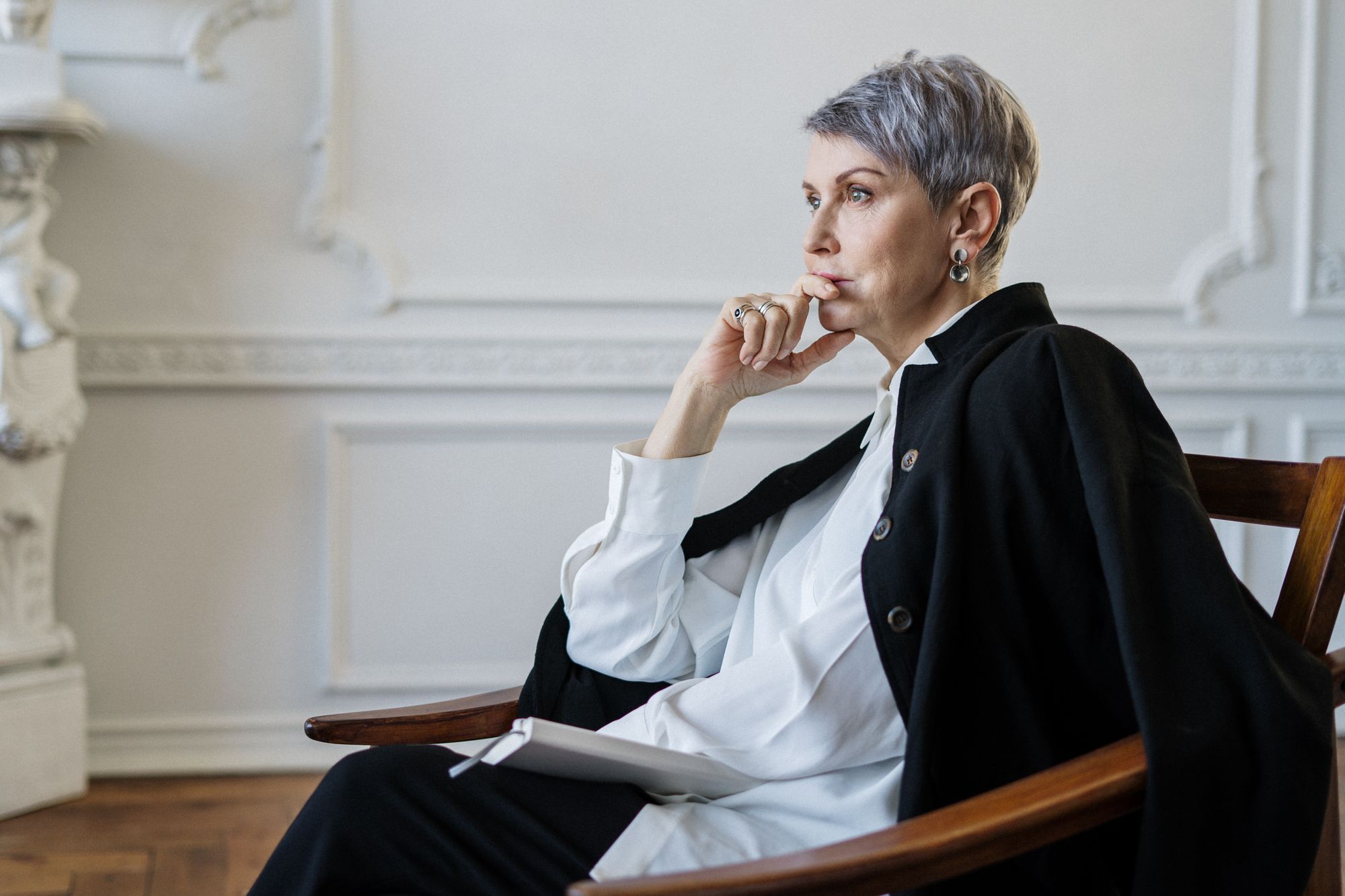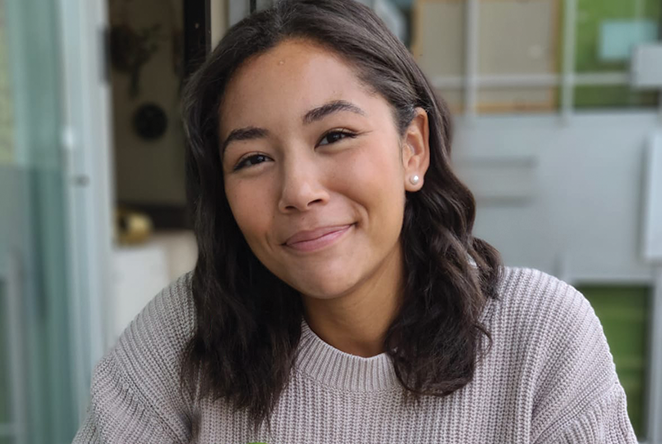What Does it Mean to Have a Good Death?

Marina Morgan
When someone we love passes away, we immediately begin the process of determining whether or not they had a “good death” by dissecting the circumstances by which their life came to an end. Were they surrounded by family and close friends? Was the death expected or unexpected? Did they die in the care of medical professionals or at home? These questions on life and death often consume our minds immediately after experiencing a loss.
While most of us only ever experience loss in relation to the loss of loved ones or public figures, we wanted to know what a good death meant to those who experience death every day. We posed the question: what does it mean to have a good death? to death care professionals across different disciplines to determine whether a good/bad binary could (or should) be applied to death and dying.
By providing you with the insights of professionals who have dedicated their careers to helping others transition into the next stage of life, our hope is that their perspectives inspire you to contemplate your own desires for end-of-life, and have meaningful discussions with your loved ones about your final wishes.
Question: What does it mean to have a "good death"?
Shoshana Ungerleider is an internal medicine physician, the host of the TED Health Podcast and a leading voice in healthcare who regularly appears as a medical contributor on CNN, MSNBC and CBS News. Shoshana is also the founder of End Well Project.
“Country music star Tim McGraw. “The View” co-host Meghan McCain. A 13-year-old prospective nurse. A 94-year-old inventor and designer. What do they — and the rest of us — have in common? In a word, death.
More broadly speaking, all human beings will eventually experience both the loss and grief that accompanies the passing of a loved one and the realization that our own days truly are numbered. But rather than be daunted by, or even afraid of, that prospect, there’s a movement afoot to bring people, ideas, technology, care and community together to create a new roadmap that will transform living and dying into a fully human and humane experience for everyone.”
Linda Hochstetler is a Registered Social Worker in private practice who wants to help people talk about living life more fully. She focuses on self-acceptance and compassion, and encourages people to find their own priorities for their life. Linda is a regular host of the Toronto West Death Café and is also the author of an upcoming book titled 21 Days to Die: A Canadian Guide to End-of-Life which will be released October 13th, 2021.
“The most important determinant of a good death is the willingness to see death coming for a few weeks before it comes. Ideally the stages of dying are known to not only the dying person but also their friends and family. This makes it easier to say thank you and goodbye when the time is close, and for everyone involved to feel ready enough for the transition.”
Juile McIntyre is a Toronto based Family physician who transitioned to end-of-life consulting out of personal interest after providing 30 years of care primarily to seniors in her time as a physician.
“To me a good death involves some preparation: Advance Care Planning so that if you’re not able to make healthcare decisions for yourself, the ones you’ve chosen to do so can, with confidence. This will make it more likely you can die where and how you’d prefer and ease the burden of those you leave behind. This planning always seems too soon until it’s too late. It also involves dealing with Dr. Ira Byock’s “4 Most Important Things”. That is, saying to those you need to: Will you forgive me? I forgive you, Thank you, and I love you…and Goodbye.
All this thinking about death will also remind and encourage you to make the most of your life while you have it.”
Ruth McKay & Sarah Farr are the founders of Wishstone, an organization that seeks to provide support to individuals and families and help them navigate the complex issues and emotions surrounding aging, dying, death and grieving. This duo brings over 20 years of experience and training in hospice and palliative care, aging policy and quality standards, and project management.
“In our "death phobic and grief illiterate society" (Steven Jenkinson), many are reluctant to think about the fact that death inevitably comes to us all. But surely it is true that we all wish to maintain our essential selves until our last breath. A good death is one that aligns with the values, beliefs and wishes of the individual - all that matters in the end, matters now. But a good death does not happen in a vacuum - most of us need compassionate and knowledgeable support, both for ourselves and our loved ones, to help us take the journey with dignity and grace.”
Emily Bootle is a Licensed Funeral Director in Vancouver, British Columbia and the founder of DeathCare BC. She also serves in Communication and Public Outreach on the board for the Green Burial Society of Canada.
“When some of us die it is a huge boulder falling into a lake, splashing and noisy with ripples that last for several minutes. My hope is that by the time of my death I will have prepared my community so that I may drop like a small pebble with slow-moving ripples waving me goodbye.
The "good death" for me is the one that leaves the living with a sense of peace amongst the pain of sorrow.That being said, the splashy death is not "bad", it may be surprising, traumatic, or untimely, but it is not bad. It is simply a different journey for the living who are there to witness and wait for a return to calm.
I do try to limit the good/bad death contrast if I can since families in unexpected situations are often really hurting over the thought that their loved one may have had a "bad" death. But it is definitely something we hear a lot about so it is an idea worth exploring.”
Joy Greene followed her dream of becoming a Registered Practical Nurse after spending 28 years as a dental hygienist. She has been an RPN for five years and was inspired to pursue a career in healthcare by her mother and sisters, as well as family members who have worked in death care.
“I think a good death starts with calm and open conversations about end-of-life when you are living. Planning your death can be similar to having a birth plan and each person's plan will be different.
My plan involves an acceptance of my mortality and a wish for medical relief from suffering, time to say words to the people I love, soft blankets, good music and my pets nearby. For others a good death may mean fighting against death until the end with every medical intervention available.
If you take the time to make your wishes known by either writing it down or talking about it, you can have a good death because it will be exactly what you want and not what others choose for you.”
Jennifer Connolly is the managing funeral director at Eirene Cremations. Jennifer has worked in both traditional, and non-traditional funeral homes for over 15. She also has facilitated embalming labs for the Funeral Director program at Humber College.
“I think a good death means empowering ourselves to make choices that directly affect the end of our life... having conversations with people that are important to us, choosing our final journey, making conscious decisions while we still can. Knowing our limitations and embracing the love that is being given. We don't get a lot of choice, we know death is imminent for all of us, but we can choose to control elements within it, we can be prepared, we can leave a legacy that enables our loved ones to remember us well.”
At Eirene, we understand that acknowledging our own mortality can leave us feeling both vulnerable and anxious. We’ve all heard the phrase communication is key, and perhaps communication is key to unpacking complex feelings related to death and dying, and ensuring that our loved ones are aware of our wishes for end-of-life before that time comes.
These wishes could include your desires for life sustaining medical treatments, what to do with certain belongings, even outlining how you’d like to be honoured— because no one will know you want to be honoured with an elaborate (or simple) send off unless you tell them.
By providing you with the perspectives of several professionals in the end-of-life space, our hope is to demonstrate that perhaps a good death simply means living in a way that makes the transition to the next stage of life easier for those we leave behind.
For more resources on grief, death, funeral planning and pre-planning, be sure to visit eirene.ca/blog.




